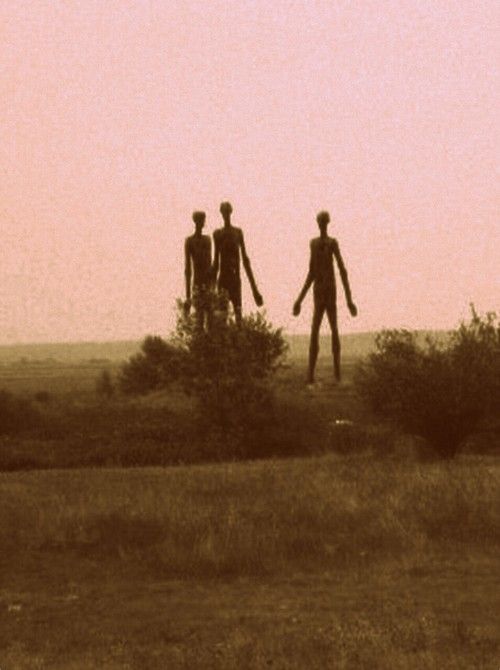http://www.cbc.ca/radio/ideas/decoding- ... of+June+22
Decoding Death: The Science and Significance of Near Death Experiences
People have reported "near death experiences", or NDE's, over centuries and across cultures. The nature of them has historically been the territory of religion and philosophy. But now science has staked its claim in the discussion. And the questions are profound: where is consciousness produced, in the brain, or somewhere else? Can consciousness continue to exist even after the heart and brain have stopped working? Contributor Ashley Walters explores the science and the meaning of near death experiences.
"Our evidence suggests that the brain does not function. Yet we do have a group of people that come back with very profound recollections and awareness of exactly what was happening to them when they were technically dead, and when you talk to their physicians and nurses and experts such as myself, they should not have been able to recall. And so of course this opens up a whole Pandora's Box of what do we need for consciousness to occur? Well, we know that in order for us to recall our consciousness of course you have to have a functioning brain, but the question is, is it brain cells that are generating consciousness or is consciousness a separate undiscovered scientific entity that is not necessarily produced by the brain but may be able to modulate the brain itself." -- Dr. Sam Parnia
Tony Cicoria's near death experience. How could such a thing be possible?
Tony Cicoria was 42-years-old, and successful orthopaedic surgeon in upstate New York. It was the summer of 1994, and a storm was approaching. At one point, he wanted to call his mother.
This was before the age of cell phones so Tony walked over to a nearby payphone. He remembers every detail of what happened next. "I dialled her number, I let it ring seven or eight times and then I started to hang up the phone. As I pulled it away from my face, I heard a loud crack and I saw a flash of light. It came out of the phone and hit me in the face and threw me back like a rag doll."
Tony was about to experience something few people live to talk about.
"I saw the phone dangling and had absolutely no idea what had happened other than the fact that I knew I had been hit by lightning. And I should have been going backwards and now I'm standing here. And right at that moment, I heard my mother-in-law screaming at the top of her lungs and she's running right at me and she just went right by me. And I turned to see where she was going and I suddenly realized that she was heading over to see me. I'm over on the ground. I had the sudden realization that, Oh my God, I'm dead!"
Tony had gone into cardiac arrest. Luckily, the woman waiting in line behind him happened to be a nurse, and she started CPR immediately. And then, things got even stranger.
Tony stood beside his body and watched as the nurse started CPR. He could hear everything that people were saying around him, but nobody could hear or see him. "At that moment I realized that oh my God, I was still thinking in the same way that are normally would if I was alive."
Tony was having what's known as an NDE -- a near death experience.
It's a heightened state of consciousness reported by people who were clinically dead, or who believed they were about to die. And Tony's not alone; there have been thousands of cases of people who've been revived after going into cardiac arrest. And in some of these cases people have reported accurate memories of the time after their hearts and brains had flatlined.
Guests in this episode:
Judy Bachrach is a journalist for Vanity Fair and the author of Glimpsing Heaven: The Stories and Science of Life After Death, published by National Geographic, 2014.
Gregory Shushan is a comparative religions scholar at the University of Wales and the author of Conceptions of the Afterlife in Early Civilizations: Universalism, Constructivism and Near-Death Experiences published by Continuum, 2011.
Bruce Greyson is a professor of Psychiatry and Neurobehavioral Sciences at the University of Virginia. He is editor of The Handbook of Near Death Experiences: 30 Years of Investigation, published by Praeger, 2009.
Sam Parnia is a critical care doctor and cardiac arrest researcher in Long Island, New York. He's also a specialist in resuscitation science. His book Erasing Death: The Science That is Rewriting the Boundaries Between Life & Death is published by HarperCollins, 2014.
Jan Holden is a near death researcher at the University of North Texas and the editor of The Handbook of Near Death Experiences: 30 Years of Investigation published by Praeger, 2009.
Pim van Lommel is a cardiologist and near death researcher in the Netherlands. His book Consciousness Beyond Life: The Science of the Near-Death Experience is published by HarperCollins, 2014.
Patricia Pearson is a writer based in Toronto and the author of Opening Heaven's Door: What the Dying May Be Tryng To Tell Us About Where They're Going, published Penguin Random House Canada, 2014.
Gerald Woerlee is an anaesthesiologist in the Netherlands and the author of Mortal Minds: The Biology of Near Death Experiences published by Prometheus Books, 2005.
Full episode (52 mins.): http://www.cbc.ca/radio/popup/audio/lis ... =1.3884084
Definitely worth a listen if you're at all curious about the nature of consiousness. I think any discussion of this can include related concepts like reincarnation, which has been getting some scientific attention as well.




 I found this a doorway to amazing experiences and learnings....
I found this a doorway to amazing experiences and learnings....







